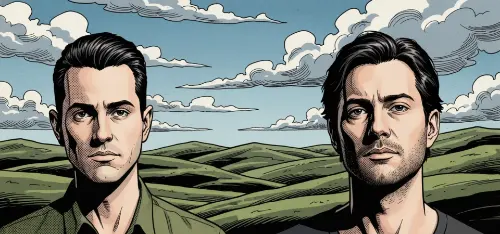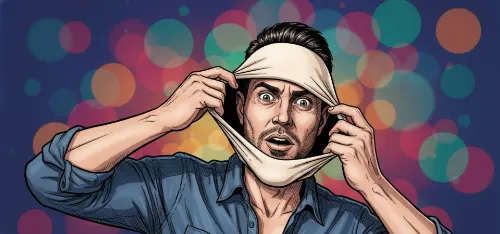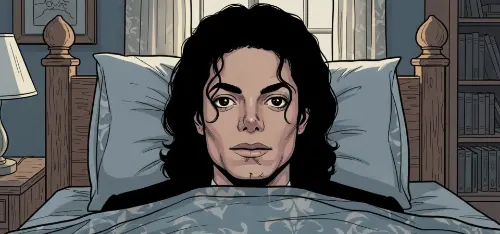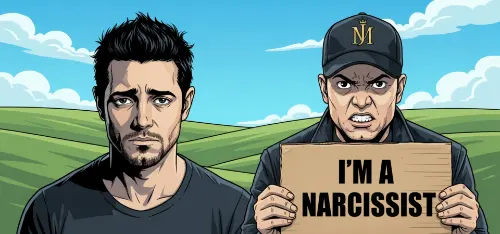Ron Zonen And Thomas Mesereau Offer Their Opinion On Wade Robson

March 23, 2020
In a 2019 piece published by Vanity Fair, two major figures from Michael Jackson’s 2005 criminal trial offered starkly opposing views on Wade Robson’s testimony — a testimony which has since become a major point of debate. At the time, Robson denied ever being abused by Jackson. This denial played a significant role in the pop star’s defence. However, years later, Robson reversed his position, claiming he had been sexually abused by Jackson as a child — prompting renewed scrutiny of his original court appearance.
Tom Mesereau, Jackson’s lead defence attorney during the trial, chose Robson as his opening witness. According to Mesereau, this wasn’t a casual decision. He believed Robson came across as credible, composed and forcefully supportive of Jackson’s innocence. Mesereau described him as an intelligent, articulate young man who insisted — without hesitation — that Jackson had never behaved inappropriately with him.
I decided to make Wade Robson my first witness because he was very supportive of Michael Jackson (...) I found him to be pleasant, intelligent, articulate and a good person to talk to. And he was adamant that Michael Jackson had never molested, abused or touched him inappropriately.
By contrast, Ron Zonen — one of the lead prosecutors — viewed Robson’s testimony very differently. He believed Robson was lying on the stand and that his denial of abuse was disingenuous. Zonen claimed that Robson’s behaviour during questioning — including signs of discomfort and visible unease — strongly suggested he was hiding the truth. He even remarked that the prosecution team was certain Robson had been a long-term victim of Jackson’s abuse.
Oh, we thought he was lying (...) There was no doubt in our minds about that. We were convinced that he was a victim of long-term sexual abuse by Jackson. And everything about his demeanour on the stand suggested that we were correct. And, of course, we were right. He was noticeably uncomfortable. He was the kind of uncomfortable when you're under oath in front of a large group of people answering questions falsely.
So, whose version should we believe? Realistically, perhaps neither.
It’s important to keep in mind the role that lawyers play in a criminal trial. Their job is not necessarily to present an objective account, but rather to advocate fiercely for their side. That means framing facts in a way that helps their case, often leaving out details that don’t. This doesn't make them dishonest, but it does mean their assessments are rarely neutral. In fact, it's only when a lawyer openly admits something that harms their case that we can arguably regard it as a true litmus test of their honesty.
This becomes especially relevant when considering the surge of defence-oriented documentaries that have emerged in recent years. These productions often elevate figures like Mesereau and Scott Ross (a former private investigator for Jackson) as trusted voices of reason. But it’s worth asking: can we genuinely expect them not to defend the biggest — and most high-profile — case of their careers? Significantly, these documentaries rarely feature perspectives from police investigators or neutral outside parties. That omission may not be accidental — such voices might not fit the intended narrative.
Returning to the interview, both Mesereau and Zonen agreed on one point: if Robson had told the truth in 2005 — assuming his later claims are genuine — the outcome of the trial might have been very different.
Mesereau admitted he was concerned the jury might become deadlocked and so made the strategic decision to present his own defence witnesses, Robson included, in order to secure full acquittals. Zonen, on the other hand, was even more emphatic. He argued that Robson’s truthful testimony at the time would likely have led to a conviction — and that such a conviction might have dramatically altered Jackson’s life. “He would be alive today,” Zonen claimed, implying that the lack of accountability contributed to Jackson’s personal decline.
From a more cautious standpoint, it’s hard to say whether Robson speaking out at that moment would have completely reversed the trial’s outcome. But it’s reasonable to think it could have strengthened the prosecution’s position — or at the very least, complicated Jackson’s defence.
And perhaps, regardless of your views on the case, fans who continue to insist that Robson’s change of story was a betrayal might do well to consider the possibility that not speaking out helped protect their idol from conviction.
Lastly, there’s something worth noting about how Mesereau describe Robson’s earlier testimony. Terms like “adamant” and “unequivocal” are often used — as if his refusal to admit abuse proves the truth of what he said. But that framing ignores a very real and well-documented phenomenon: many survivors of sexual abuse deny their experiences at first, particularly under the pressure of public scrutiny or legal cross-examination. In that light, Robson’s calm, clear denial in 2005 may not be the ironclad defence of Jackson that some assume.
When it came down to it, all Robson had to do was reject each probing question. And for someone who had grown up in close proximity to fame, lawyers, and media pressure, that might not have been all that difficult.
With permission, the following article was translated and enhanced from The Truth about Michael Jackson.





